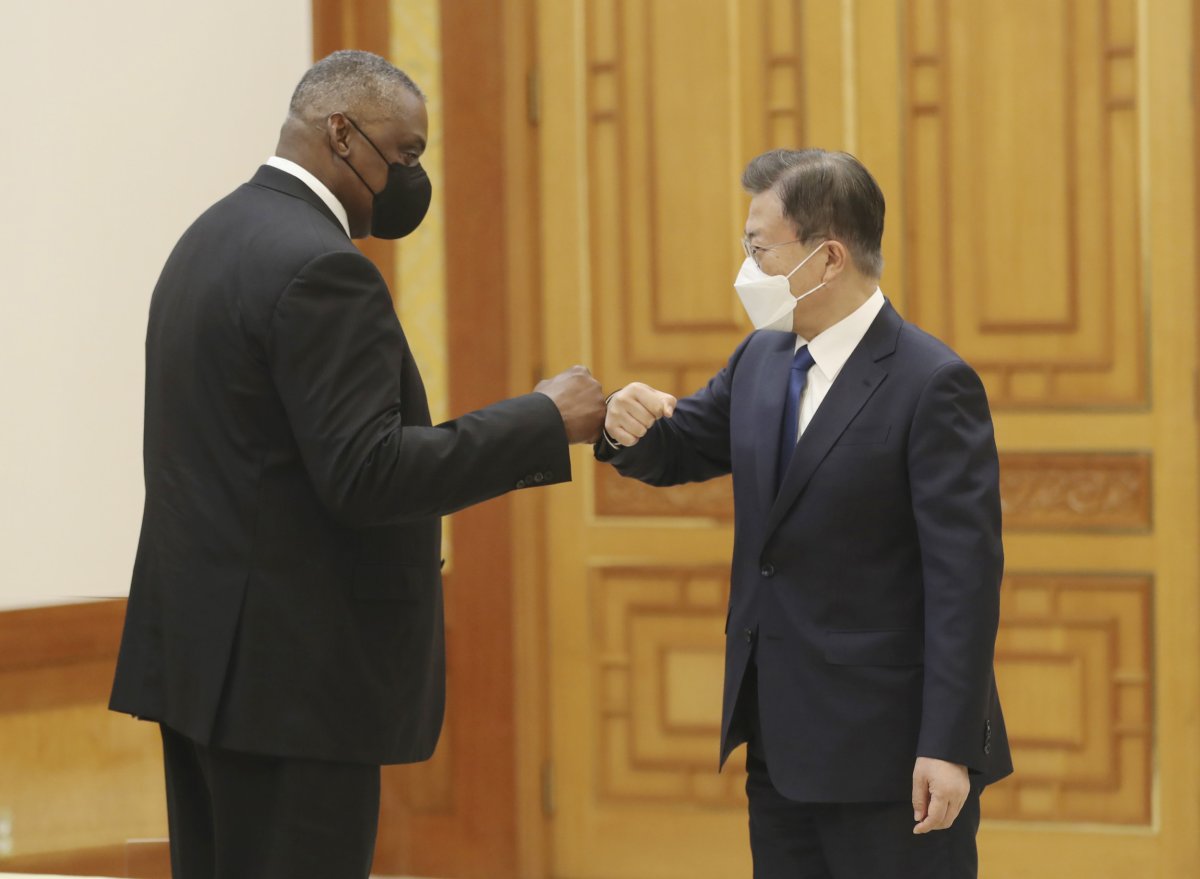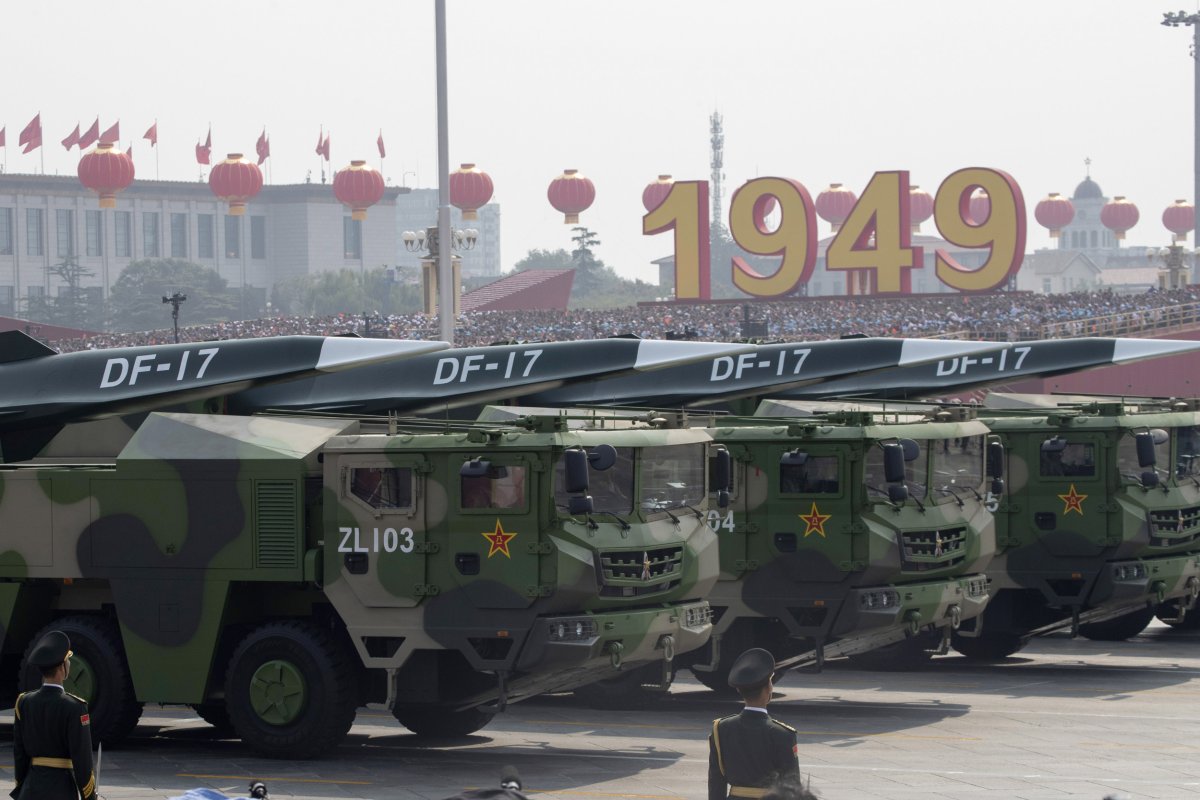Defense Secretary Lloyd Austin on Thursday reprimanded China and its testing of hypersonic weapons, vowing to defend the U.S. against any potential military threats, the Associated Press reported.
Austin made the remarks during annual security talks with South Korea. One of the Biden administration's top foreign policy concerns is how to contain a strengthening Chinese military.
In July, China tested a hypersonic weapon capable of partially orbiting Earth before reentering the atmosphere and heading toward its target. Hypersonic weapons travel at Mach 5, five times the speed of sound. The hypersonic weapons are feared to be capable of evading U.S. missile defense systems because of their speed and maneuverability, according to the AP, but China said it was testing a reusable space vehicle, not a missile.
"We have concerns about the military capabilities that the [People's Republic of China] continues to pursue, and the pursuit of those capabilities increases tensions in the region," Austin said. "We'll continue to maintain the capabilities to defend and deter against a range of potential threats from the PRC to ourselves and to our allies."
General Mark Milley, chairman of the Joint Chiefs of Staff, said last month the U.S. is also working on hypersonic weapons, the AP said. But there is concern in Washington that American efforts are falling behind those of China and Russia. Some experts also worry that pursuing these weapons could trigger a new arms race.
For more reporting from The Associated Press, see below.

On Monday, the Pentagon released the results of a global posture review that calls for additional cooperation with allies to deter "potential Chinese military aggression and threats from North Korea."
Austin also addressed another major U.S. worry: North Korea.
He said that he agreed with South Korean Defense Minister Suh Wook that the North's growing weapons program "is increasingly destabilizing for regional security." Austin said the allies remain committed to a diplomatic approach to North Korea.
Suh said the two agreed on a document updating joint contingency plans in the event of a war on the peninsula to reflect changes in North Korean threats and other conditions, but didn't elaborate on the document's details.
North Korea's nuclear arsenal is believed to have grown significantly in recent years.
After a series of high-profile missile and nuclear tests in 2016-17, North Korea claimed to have the ability to launch nuclear strikes on the American homeland. According to a 2018 South Korean estimate, North Korea has built up to 60 nuclear weapons.
Despite severe economic hardships related to the pandemic, North Korea has continuously rebuffed U.S. offers to resume disarmament talks, saying Washington must first abandon its hostility. The Biden administration maintains that international sanctions on North Korea will stay in place until the country takes concrete steps toward denuclearization.
The United States stations about 28,500 soldiers in South Korea to deter potential aggression from North Korea. During Thursday's meeting, Austin highlighted a U.S. commitment to maintain the current level of U.S. forces, according to a joint statement.
The alliance, forged during the 1950-53 Korean War, was tested in recent years as then-President Donald Trump threatened to pull U.S. troops out of South Korea if Seoul did not drastically increase its financial support for them. Trump also repeatedly complained of the cost of regular military drills between Washington and Seoul.
Such concerns have eased since President Joe Biden took office last January. But the alliance still faces challenges such as Seoul's historical disputes with Japan, another key U.S. regional ally, and its hesitation to join U.S.-led initiatives targeting China, its biggest trading partner.
Austin and Suh pledged to continue trilateral cooperation involving Japan. But they didn't elaborate on how South Korea and Japan could overcome tensions stemming largely from Tokyo's 1910-45 colonization of the Korean Peninsula.

Uncommon Knowledge
Newsweek is committed to challenging conventional wisdom and finding connections in the search for common ground.
Newsweek is committed to challenging conventional wisdom and finding connections in the search for common ground.
About the writer
To read how Newsweek uses AI as a newsroom tool, Click here.








